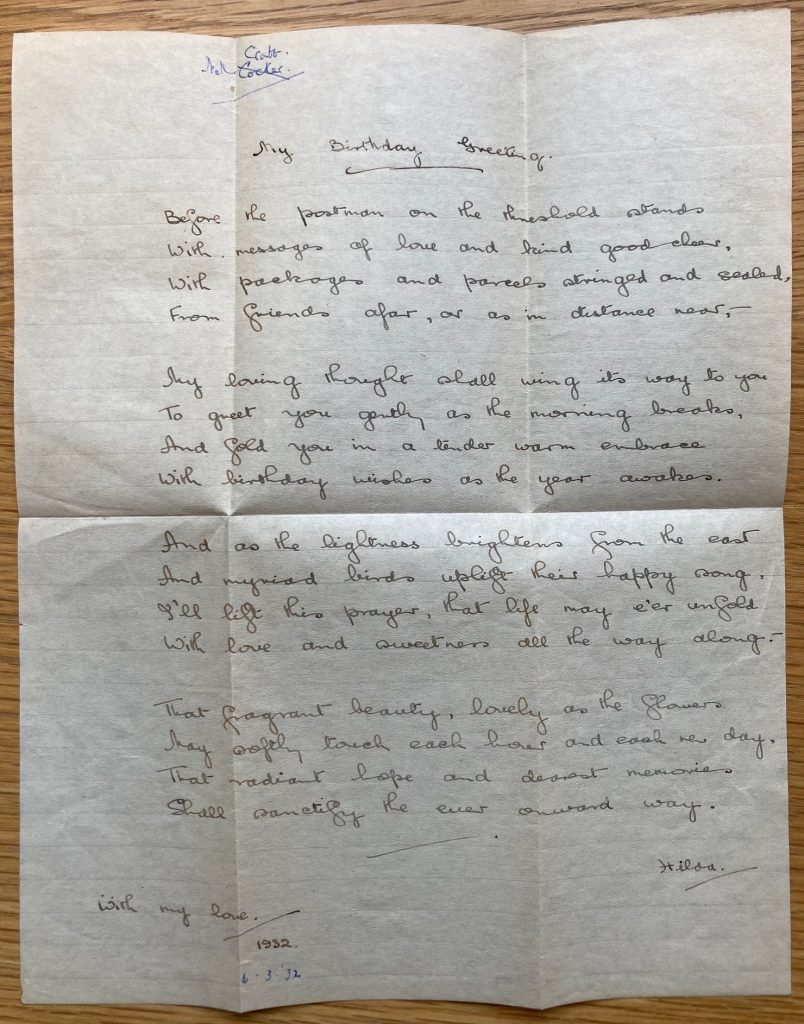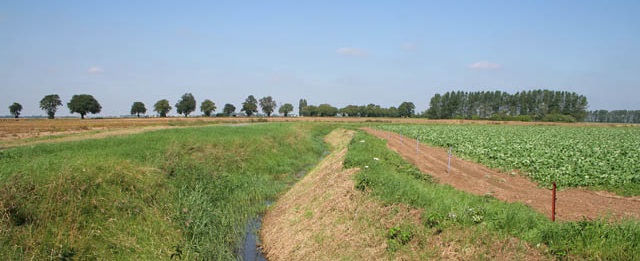
Hilda L. Everett: A Twentieth-Century Fenland Poet
One of the primary benefits of legal deposit is that all sorts of obscure, locally published material makes its way safely into a national collection for posterity, to be re-discovered decades or even centuries after publication. Until recently the Library held seven slim volumes of poetry by the Haddenham-based poet Hilda L. Everett but due to the nature of how non-academic material has in the past been treated, only one of these appeared in the online catalogue. But six more were to be found in the supplementary card catalogue, housed high up in the Library tower, and to these were recently added eight further booklets, acquired from the London bookseller Jarndyce, giving us a substantial collection of the of this little-known local poet.
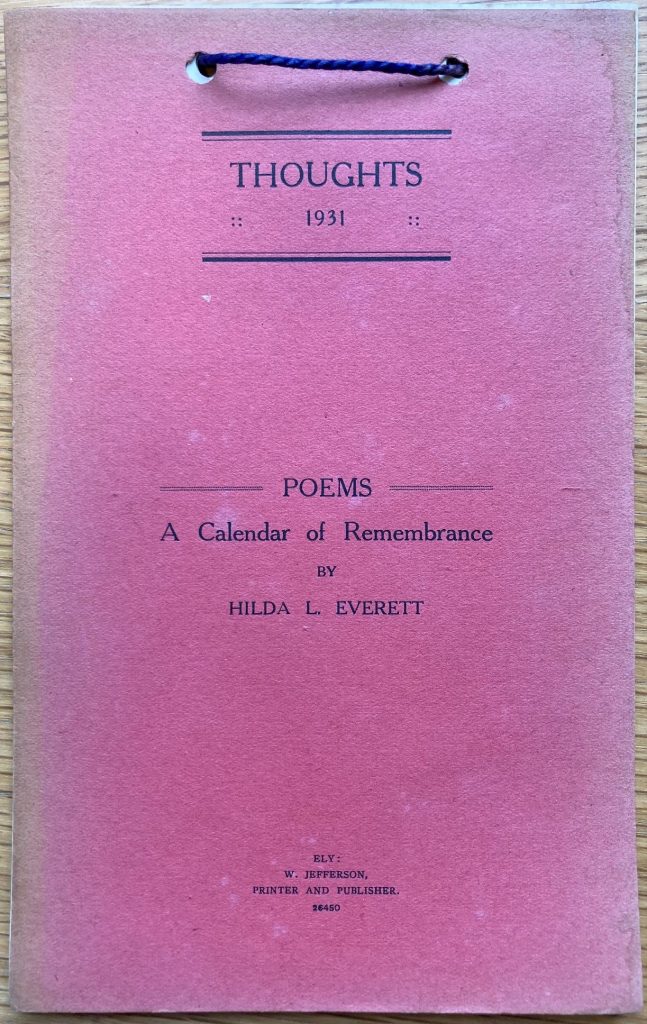

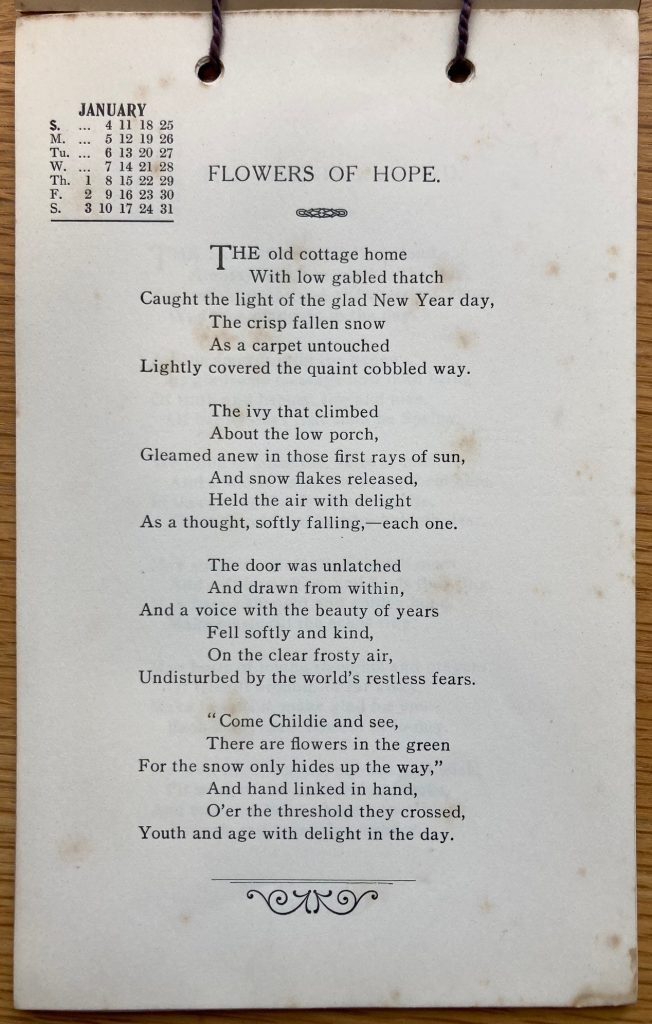
Little is known about Hilda L. Everett but much information is provided in an undated newspaper cutting found in one of the recently acquired booklets. It is noted that she came from London, but lived in the village of Haddenham (7 miles south-west of Ely) for six or seven years, during which time she worked in the post office. Her residence in Haddenham presumably coincided with the period in the 1930s when much of her poetry was being printed at Ely. She may also have lived at Upware (9 miles south of Ely), which appears in the titles of several of her collections. Latterly she moved to Norwich. Her health, ‘of an indifferent character [which] presented her from indulging any of the usual outdoor pursuits’ gave her much time for composing poetry. It is not known when Everett died but she seems to have lived until at least 1974, when someone of the same name wrote a poem on the closure of Hunstanworth school in Durham, which suggests she may have moved north. If anyone has more information on her life and work, we’ll be glad to have it!
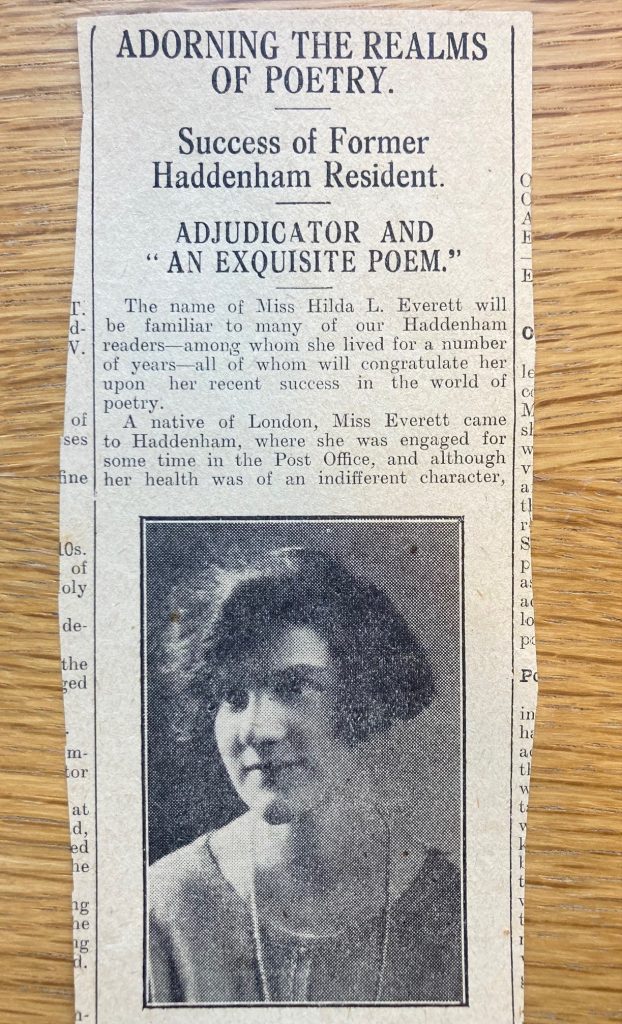

The news article was occasioned by Everett’s winning a poetry competition arranged by the International Institute of British Poetry & Calder Valley Poets Society, and laments that ‘it is unfortunate that the district has lost one who can picture so well for everyone to enjoy, our beautiful country villages’. It notes that her prize-winning poem was considered ‘technically … almost faultless’ by the judges. They went on: ‘To weave a poem of this standard from so commonplace a subject … is a work of pure art. This writer is capable of mighty things, and will go far to adorn the realms of poetry.’
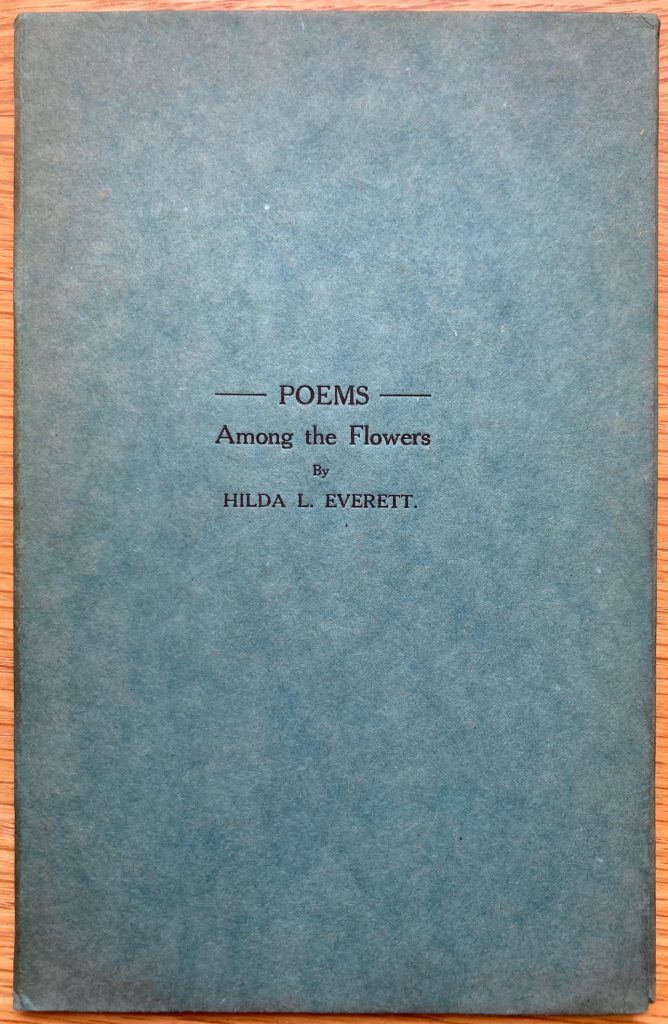
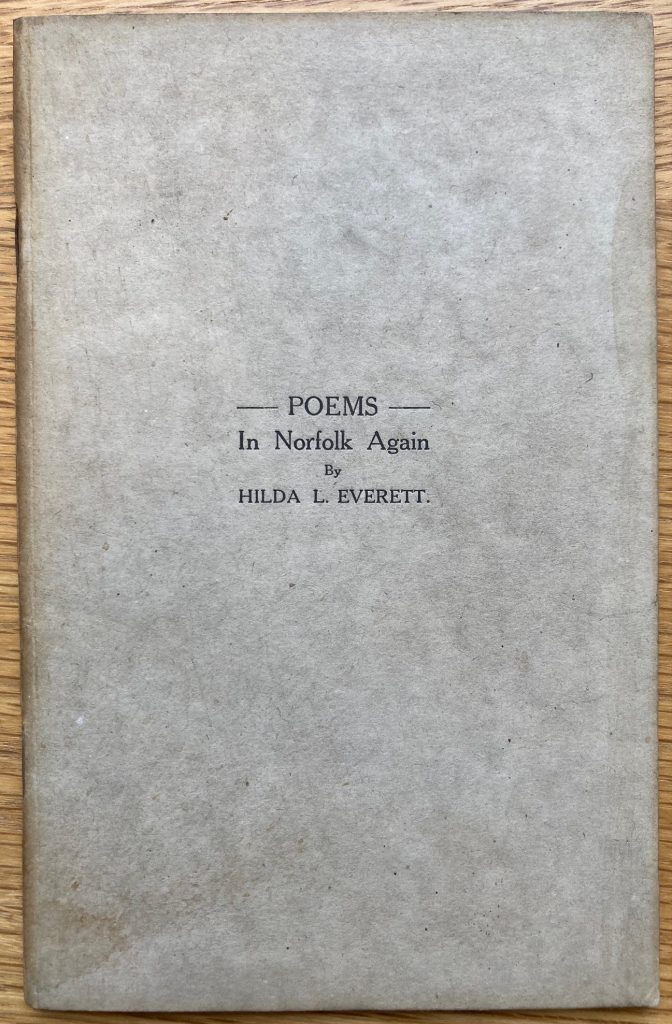
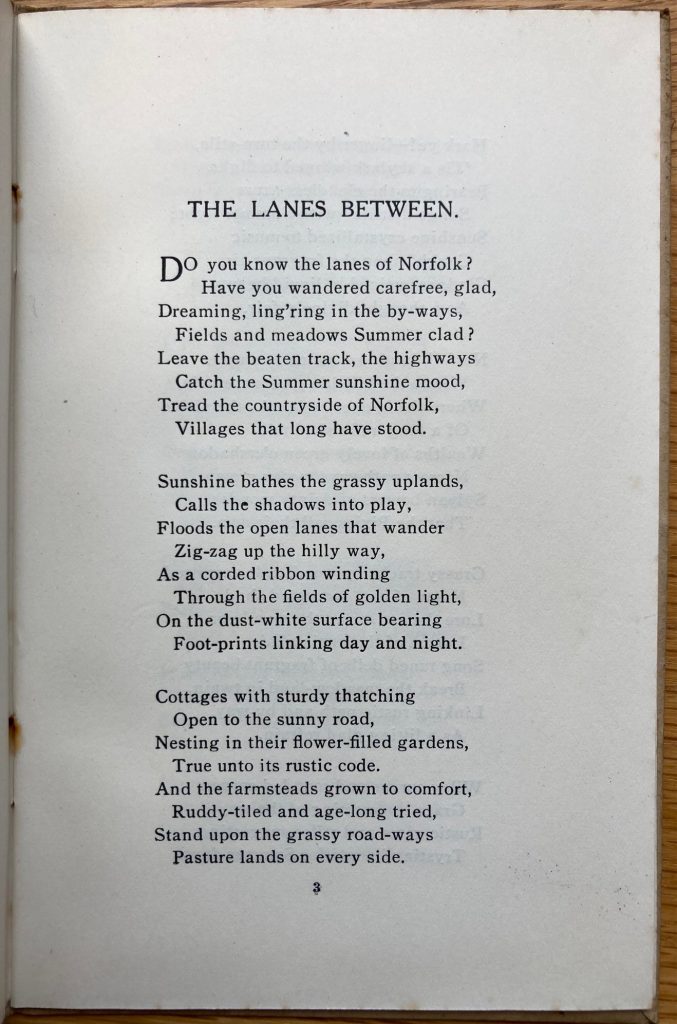
Everett’s poems are broadly themed around nature, village life, and the seasons, with booklet titles including ‘An adventure of Springtime‘, ‘Poems in Norfolk‘ and ‘Among the flowers‘. Some were written primarily for children: the poem ‘The spider and the fly’ in one of her collections of Norfolk verse is annotated in manuscript – perhaps by Everett herself – ‘for the children’. Others are more religiously themed, notably her 1931 collection ‘A calendar of remembrance‘.
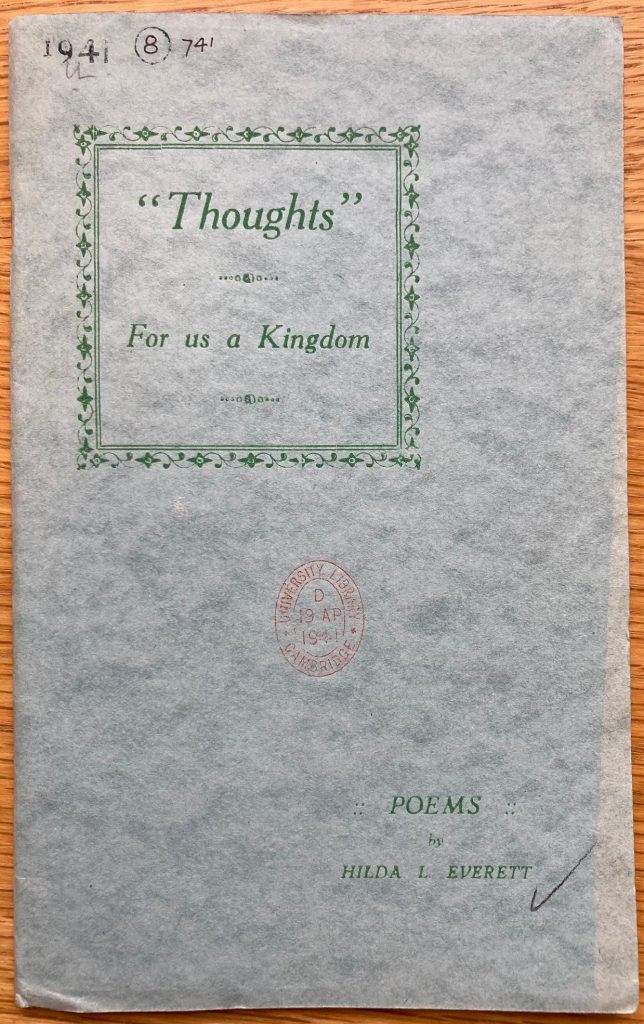
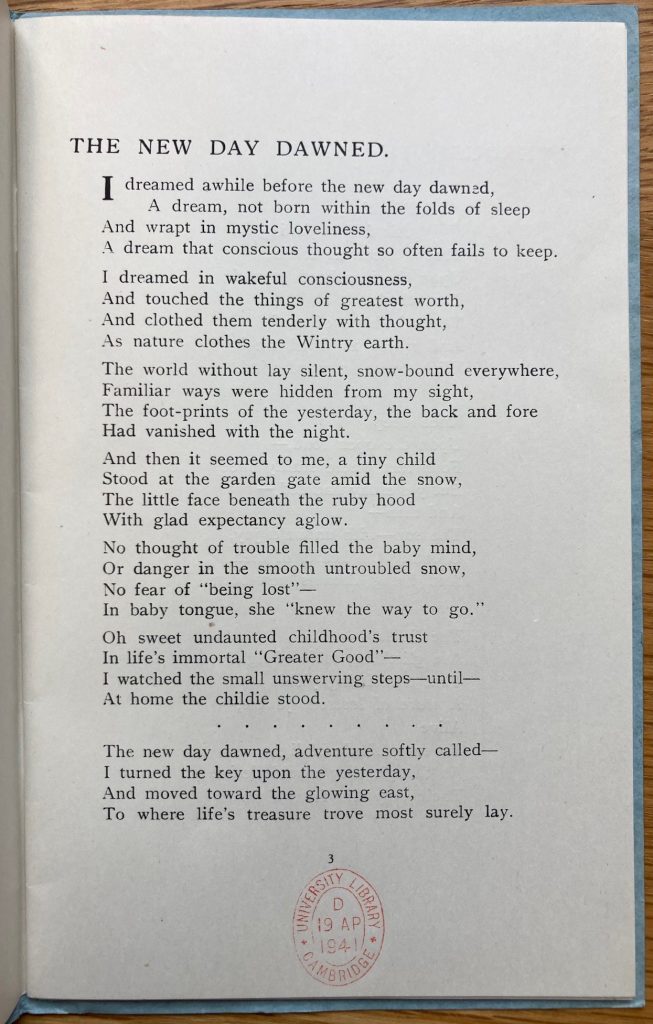
Using Library Hub Discover and Abebooks (where are offered several booklets apparently not held in any Library) I have counted at least 18 booklets of poetry issued in Everett’s name, the earliest dated 1930 (issued in a calendar format, as in ‘Thoughts 1931’ above, with a poem for every month) and the latest dated 1950 (Legends for Christmas). Many are in stiff paper covers (as with ‘Poems among the flowers’ and ‘Poems in Norfolk again‘ above) and consist of just 16 or 20 pages, with no illustrations. Many of these examples from the 1930s were printed by W. Jefferson in Ely. The latest held in the Library dates to 1941 – Thoughts: For us a Kingdom – and bears no evidence of where it was printed or who printed it. There is also no date, but (as with several of her booklets) the dated accession stamp helps us a great deal. Other legal deposit libraries – including the British Library, Bodleian and the National Library of Scotland – hold a handful each of her booklets, but the collection now at Cambridge is the largest held by a single institution.
All fourteen works by Everett housed in the Library are now available in the online catalogue, to be ordered to the Rare Books Room. Two manuscript poems in her hand, found slipped inside one of the booklets (see image above), have now been transferred to the Department of Archives & Modern Manuscripts (at the class MS Add. 10496/5). Together, they strengthen our holdings of local material, notably the ‘Cam‘ collection (founded on the private collection of University Registrary J. W. Clark, which arrived in the Library in 1910) and our extensive holdings of ephemeral and broadside material, some of which was recently featured on the Digital Library. They remind us that, in addition to being one of the world’s great research libraries, Cambridge University Library also has a responsibility both to preserve and share material of local importance. We serve not only students and researchers within the University, but those who live and work in the villages, towns and cities of Cambridgeshire and the Fens.

